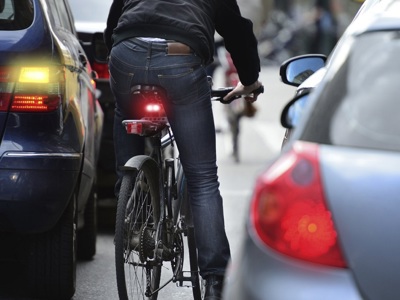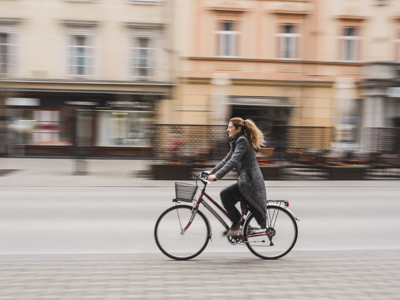
Cycling abroad: preparing for your trip and understanding what to do in the event of an accident
Posted on 15 July 2024
Summer holiday season is here and whether you are planning a cycle tour abroad, an overseas training camp or fancy touring a new city via bicycle, understanding your chosen destination's cycling rules, road infrastructure and what to do in the event of an accident is vital. This article covers the key steps to consider when planning a cycling trip abroad.
Firstly, when booking your cycling trip, it is important to ensure you have the correct insurance cover in place, including accident, medical, and property cover. Your policy should cover you for your chosen destination(s) and the excursions and activities you plan to undertake. Note that some insurance policies exclude certain types of riding e.g. mountain biking, enduro/downhill or competing in amateur events. Always read the small print! If you are travelling with your own bike, you might want to consider a specialist bike insurance policy.
If you're planning to hire a bike at your destination, research the different bike hire options beforehand to make sure you’re renting from a reputable company. You should take time selecting the hire bike to ensure it is the right size and style for you. When you collect the bike, make sure the brakes and gears have been checked and are working correctly and that they have been serviced before your hire starts.
If you’re taking your own bike, it's advisable to invest in a suitable bike bag or box to transport it in. When you arrive at the airport you’re travelling to, check that your bike has not been damaged during the journey. If it has been, take clear photographs of any damage before you leave the airport.
Cycling safely abroad
Before you set off make sure you know the traffic rules, that you are cycling on the correct side of the road and checking for traffic coming from the correct direction at junctions. Take some time to read up on common road rules for the destination and be aware of the signage.
Additionally, you can get in touch with local cycling clubs to join them for a ride, for route suggestions, or for more details about cycling in the area.
Next, you should never rely solely on your phone for navigation, as some areas may not be covered for GPS or network coverage, or your battery may run out. You might want to consider taking a paper map with you as a failsafe and for peace of mind.
It is important to prepare for any situation and have a plan for what you would do if you have a collision or mechanical issue whilst riding. This includes knowing who you can call for roadside assistance, how you will get back to your hotel and having the numbers of local taxi companies and emergency services to hand.
Finally, always carry an ID card and keep a written copy of your contact information, hotel details and an ‘in case of emergency’ message written in the local language. Plus, it's always useful to know a few sentences in the local language in case you get stuck. It’s also a good idea to keep a copy of your health and travel insurance with you along with your EHIC/GHIC if you are in Europe.
What to do in the event of a cycling incident
In the event of a road traffic accident, the first thing to do is minimise further risks to yourself and road users. If you can move without causing further injury, you should move to a safe place, such as the side of the road or pavement. If needed, you should call for medical help.
If you are able to, exchange details with the driver and any witnesses and gather evidence or information from the incident scene, including making a note of the exact location and taking photographs of the scene, your bike and injuries. If you are too injured, then ask someone to do this for you.
At the scene of the incident or shortly after, file a report with the police and contact your insurer. You should keep a copy of all completed incident reports and ensure you have details for the local police involved, including a reference number if applicable.
Next, you should keep the receipts for any expenses incurred due to your cycling accident, such as travel expenses to and from the hospital, medical treatment, subsistence, additional accommodation and phone calls. Additionally, obtain original or copies of medical records and reports for any treatment received.
Lastly, do not accept any compensation offered from your hotel, tour operator, insurer, or any other party that has caused your cycling accident without seeking independent legal advice from a specialist cycling lawyer first.
Instructing a lawyer
If you have been involved in a cycling accident abroad, we recommend that you instruct a specialist personal injury lawyer with experience in handling international cycling injury claims.
Hopefully, this article has provided tips and guidance for your next cycling holiday, including road safety and what to do in the unfortunate case of a cycling accident. If you would like to find out more about what to do after a cycling accident in the UK click here to read our blog.
About our personal injury claims team
Our cycling claims team has over 25 years’ experience and is the exclusive provider of legal services to British Cycling and British Triathlon members. We also have a specialist international personal injury team if you are injured abroad.
If you would like to seek legal advice or claim compensation, our expert personal injury lawyers specialising in cycling accident claims are here to assist you. Our team will provide you with the necessary support and guidance throughout the process or to discuss whether there are prospects of a claim.
Our contact details - get in touch today:
Call us: 020 7650 1200
Email us: postbox@leighday.co.uk
Alternatively, our team of specialist travel lawyers can help you get the compensation you deserve if you have an accident abroad. Click here to find out more.

Handle It Right Part 1: what to do after a cycling accident
A cycling accident can cause shock and trauma, and you might not know what to do next. This blog details what to do immediately after an accident.



